
The Enchanting Apuseni Mountains: Romania's Hidden Gem
Nestled in the heart of Transylvania, the Apuseni Mountains are a paradise for nature lovers and adventure seekers alike. Known for their stunning landscapes, these mountains offer a unique blend of lush forests, meadows, and caves. The Apuseni Mountains are less crowded than other tourist spots, making them an ideal destination for those looking to escape the hustle and bustle of city life. The region is dotted with picturesque villages where traditional Romanian culture is still very much alive. Visitors can explore local crafts, sample delicious traditional dishes, and experience the warm hospitality of the locals. The Apuseni Mountains are also home to some of the most extensive cave systems in Europe, including the famous Scarisoara Ice Cave and Bear’s Cave, which are both must-see attractions. Outdoor enthusiasts will find plenty of activities to keep them busy, from hiking and mountain biking to spelunking and wildlife spotting. The area's diverse flora and fauna make it a perfect spot for nature photography. Whether you're looking to relax in serene natural surroundings or embark on an adventurous journey, the Apuseni Mountains have something for everyone.
Local tips in Apuseni Mountains
- Visit during the summer months for the best weather and vibrant greenery.
- Don’t miss the Scarisoara Ice Cave, one of the oldest ice caves in the world.
- Pack sturdy hiking boots for the rugged trails.
- Try local dishes like 'bulz' and 'placinta' at village eateries.
- Hire a local guide for spelunking to explore caves safely.
The Enchanting Apuseni Mountains: Romania's Hidden Gem
Nestled in the heart of Transylvania, the Apuseni Mountains are a paradise for nature lovers and adventure seekers alike. Known for their stunning landscapes, these mountains offer a unique blend of lush forests, meadows, and caves. The Apuseni Mountains are less crowded than other tourist spots, making them an ideal destination for those looking to escape the hustle and bustle of city life. The region is dotted with picturesque villages where traditional Romanian culture is still very much alive. Visitors can explore local crafts, sample delicious traditional dishes, and experience the warm hospitality of the locals. The Apuseni Mountains are also home to some of the most extensive cave systems in Europe, including the famous Scarisoara Ice Cave and Bear’s Cave, which are both must-see attractions. Outdoor enthusiasts will find plenty of activities to keep them busy, from hiking and mountain biking to spelunking and wildlife spotting. The area's diverse flora and fauna make it a perfect spot for nature photography. Whether you're looking to relax in serene natural surroundings or embark on an adventurous journey, the Apuseni Mountains have something for everyone.
When is the best time to go to Apuseni Mountains?
Iconic landmarks you can’t miss
Apuseni Natural Park
Explore the stunning Apuseni Natural Park, a breathtaking natural wonder in Romania, ideal for adventure lovers and peace seekers alike.
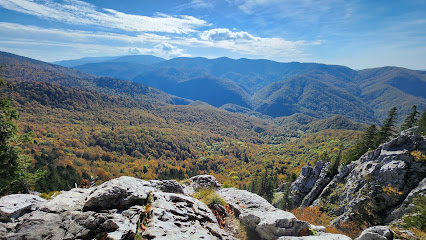
Avenul Borțig
Experience the natural beauty and geological wonders at Avenul Borțig in Apuseni Natural Park, Romania's breathtaking wilderness escape.
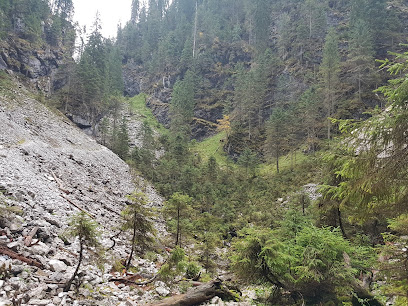
Unmissable attractions to see
Pătrăhăițești (Buciniș) Waterfall
Explore the breathtaking Pătrăhăițești Waterfall, a hidden gem in Romania, perfect for nature lovers and adventure seekers.
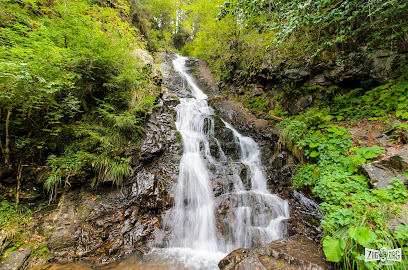
Ţâcla Gavrii
Explore Tâcla Gavrii - a serene tourist attraction in Mărișel, where nature's beauty and local culture come together for an unforgettable experience.
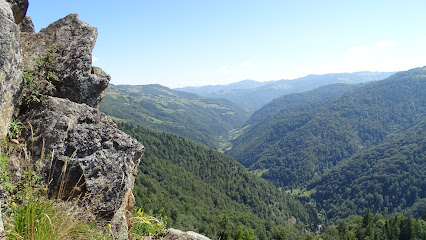
The Museum of Mining and the Roman Galleries
Explore the rich mining heritage and Roman history at The Museum of Mining and the Roman Galleries in Roșia Montană.
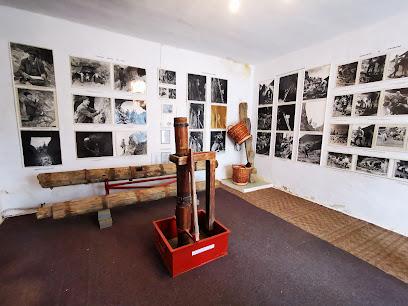
Vârful Bihor
Experience the stunning beauty of Vârful Bihor, the highest peak in the Apuseni Mountains, perfect for hiking, wildlife watching, and breathtaking views.
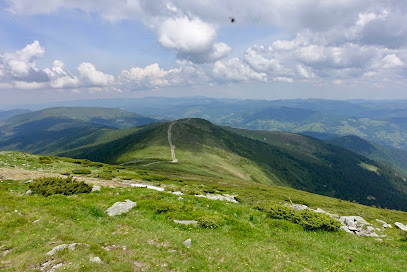
Horea Memorial House
Experience the rich heritage of Romania at the Horea Memorial House, a museum dedicated to the legacy of national hero Horea.
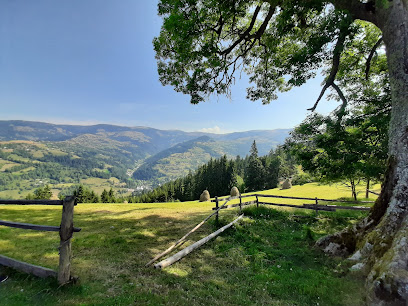
Cascada Evantai
Discover the breathtaking beauty of Cascada Evantai, a serene waterfall in Romania offering stunning views, hiking trails, and a tranquil escape into nature.
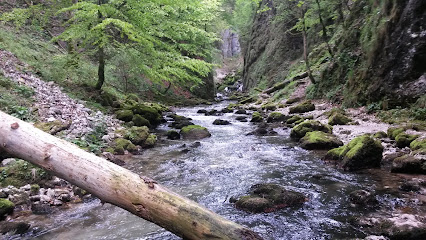
Pietrele Negre
Experience the breathtaking beauty of Pietrele Negre, a nature preserve in Romania, perfect for hiking and wildlife observation.
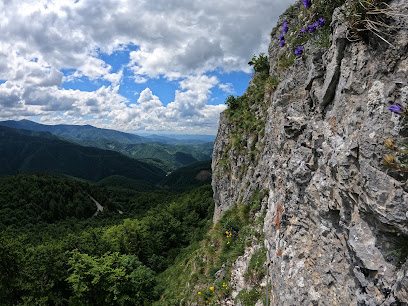
Cheile Gârdișoarei
Explore the stunning natural landscapes, rich biodiversity, and captivating hiking trails of Cheile Gârdișoarei in Romania.
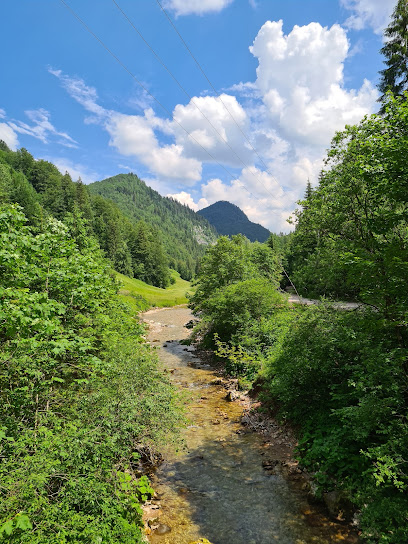
Cheile Văii Morilor
Explore the breathtaking beauty of Cheile Văii Morilor, a stunning nature preserve in Romania perfect for outdoor adventures and nature lovers.
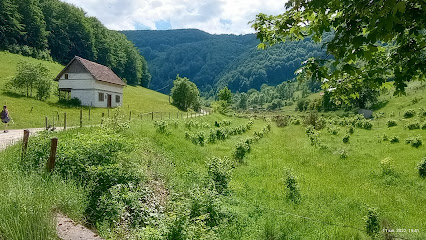
Drumul Generalului
Explore Drumul Generalului: A Scenic Route in Romania Offering Stunning Landscapes and Serene Outdoor Adventures.
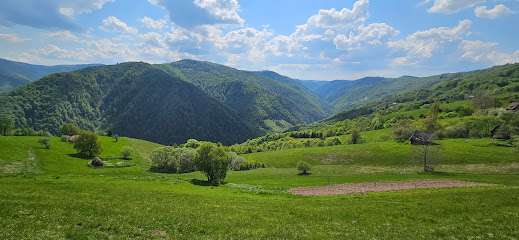
Cheile Mândruțului
Discover the stunning natural beauty and rich biodiversity of Cheile Mândruțului, a top nature preserve in Romania perfect for outdoor adventures and relaxation.
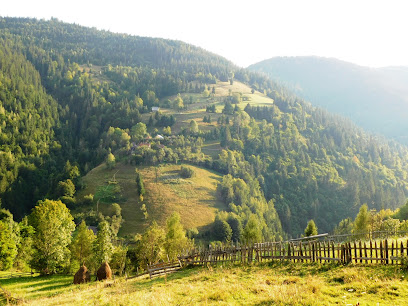
Trascău Mountains
Explore the breathtaking Trascau Mountains in Romania, where stunning landscapes, rich culture, and outdoor adventures await every traveler.
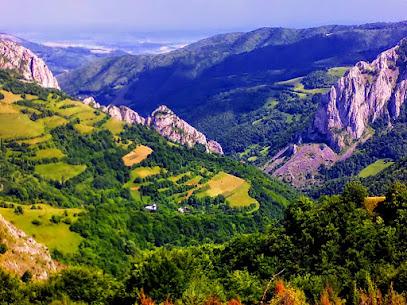
Molhașurile Căpățânei
Explore the breathtaking landscapes and diverse wildlife of Molhașurile Căpățânei National Reserve, a hidden gem in Romania's natural heritage.
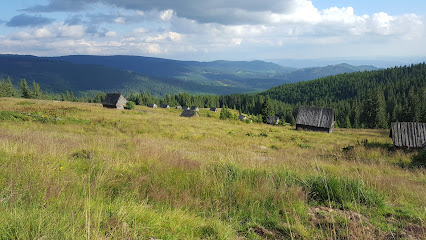
Dambul lui Gâf
Experience the serene beauty of Dambul lui Gâf, a breathtaking natural attraction in Butești, Romania, perfect for nature lovers and adventure seekers.
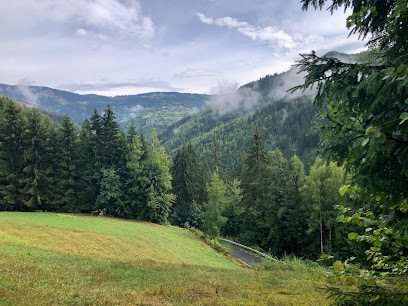
Accidentul Aviatic din Munții Apuseni
Explore the serene Accidentul Aviatic din Munții Apuseni, a memorial park in the breathtaking Apuseni Mountains, reflecting on the region's poignant history.
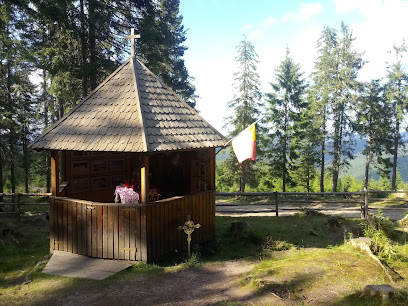
Essential places to dine
Căsuța din povești
Discover the enchanting flavors of Romania at Căsuța din povești in Horea - where every meal tells a story.
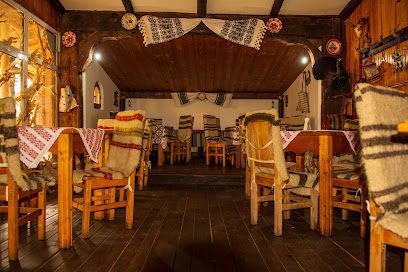
Restaurant Danciu
Experience authentic Romanian cuisine amidst the stunning landscapes of Izvoarele at Restaurant Danciu.
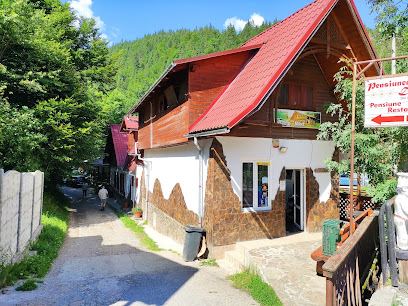
Pensiunea La Marian
Experience authentic Romanian cuisine at Pensiunea La Marian, nestled in Gârda de Sus's scenic beauty.
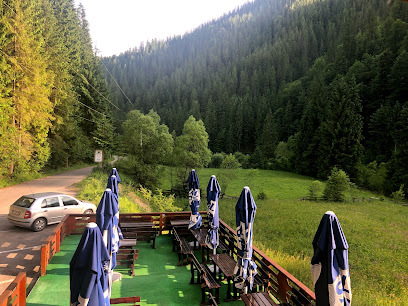
Cabana Ioana
Discover the essence of Romanian cuisine at Cabana Ioana in Munună – where tradition meets taste amidst breathtaking landscapes.
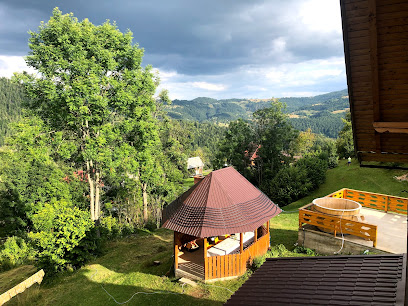
Ursoaia
Discover Ursoaia: A charming breakfast spot in Albac offering delicious local cuisine amidst stunning natural beauty.
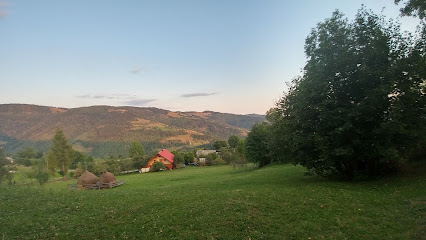
Markets, malls and hidden boutiques
Apuseni Mountains
Explore the Apuseni Mountains: A natural paradise of stunning landscapes, rich biodiversity, and unforgettable outdoor adventures in Romania.
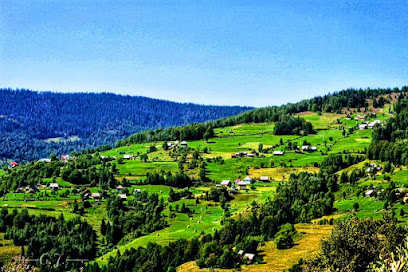
Cămara De La Munte
Discover a treasure trove of health foods and organic delights at Cămara De La Munte in Mărișel, Romania - a must-visit for health-conscious travelers.
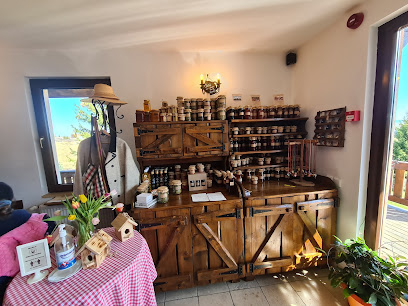
Piata agroalimentara
Explore Piata Agroalimentara in Albac for fresh produce, local crafts, and a taste of Romanian culture in a vibrant marketplace.
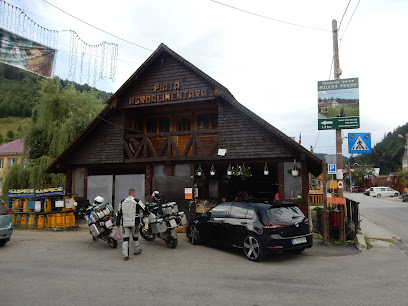
Made in Rosia Montana - Handmade Merino Wool Knitwear Shop
Discover unique handmade Merino wool knitwear at Made in Roșia Montană, where tradition meets craftsmanship in beautiful Roșia Montană.
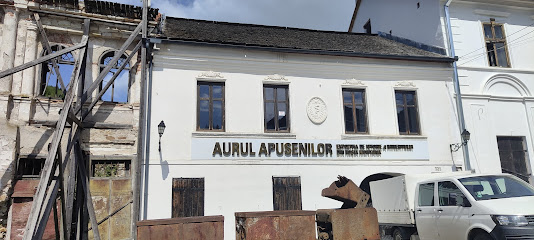
Brutaria Horea
Discover the delightful flavors of Romania at Brutaria Horea, a bakery renowned for its artisanal pastries and warm atmosphere.
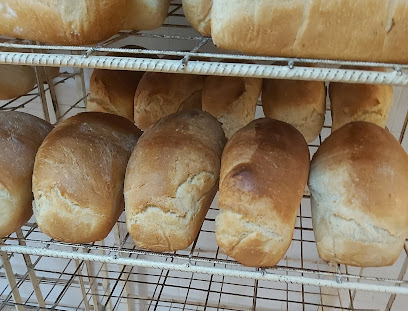
Barul lui Radu
Explore a delightful shopping experience at Barul lui Radu, the go-to supermarket in Poiana Horea for local flavors and essential goods.
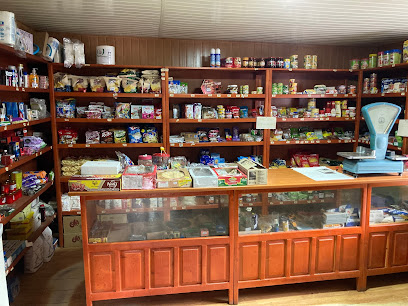
Magazin Alimentar / General Store
Explore the local flavors and culture at Magazin Alimentar, your friendly grocery store in Măguri-Răcătău, Romania.
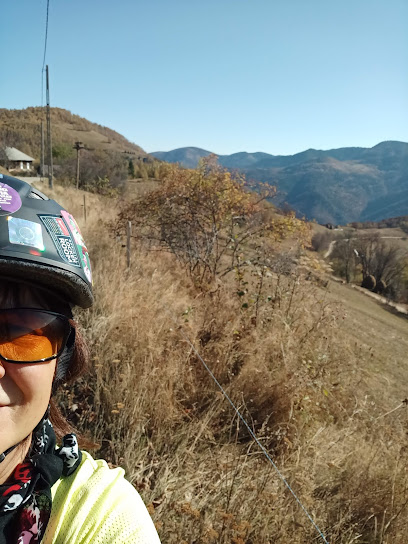
Roșca Emil Lupșa PFA
Explore Roșca Emil Lupșa PFA, a charming gift shop in Pârâu-Cărbunări, offering unique artisanal crafts and authentic Romanian souvenirs.
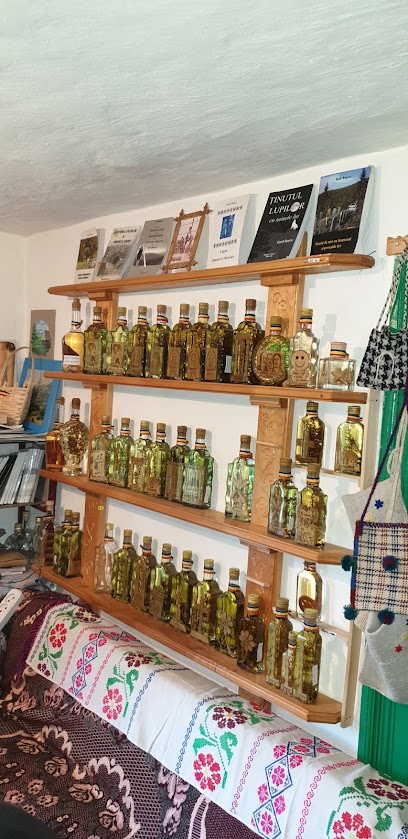
Rivaly Ch Minimarket
Discover Rivaly Ch Minimarket in Câmpeni for a delightful selection of local foods and essentials, perfect for tourists exploring Romania's culinary treasures.

Gradina Motilor
Explore Gradina Motilor, a charming shopping mall in Fața, where local culture meets modern retail in a vibrant atmosphere.
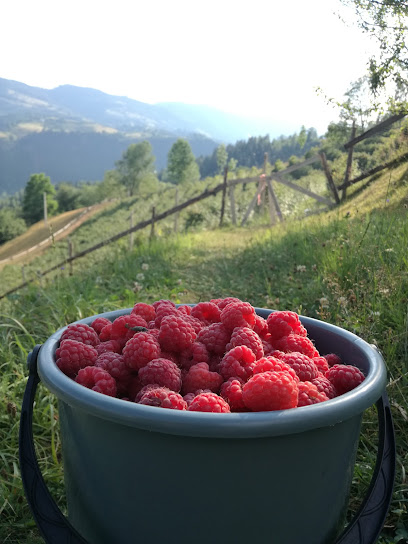
Trofi Mob
Discover Trofi Mob in Câmpeni, a furniture store that beautifully blends traditional craftsmanship with modern designs, perfect for unique souvenirs.

Coffe Brake and Market
Discover the authentic flavors of Romania at Coffe Brake and Market in Arieșeni, where local produce meets boutique shopping in a cozy atmosphere.
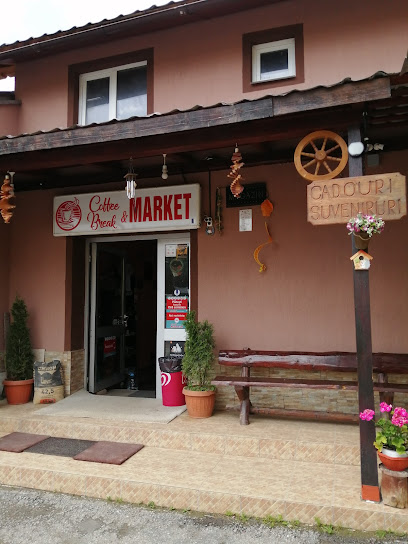
M&N ANCA STORE
Explore the exceptional selection of wheels at M&N Anca Store, a charming shopping destination in the heart of Câmpeni, Romania.
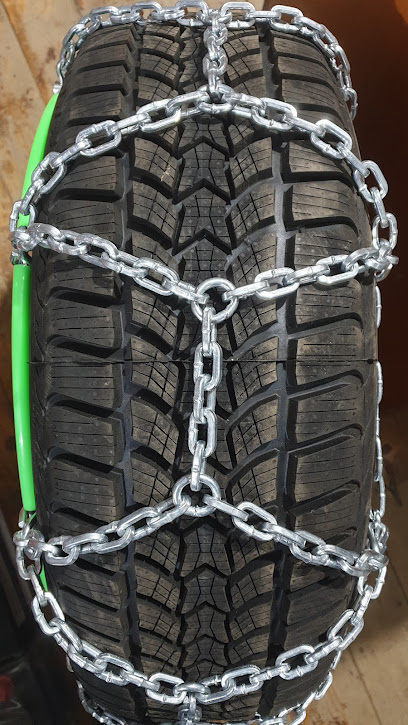
OLTEANCA SRL
Experience the charm of OLTEANCA SRL in Ciuruleasa, where boutique shopping meets local drinks and stunning views.
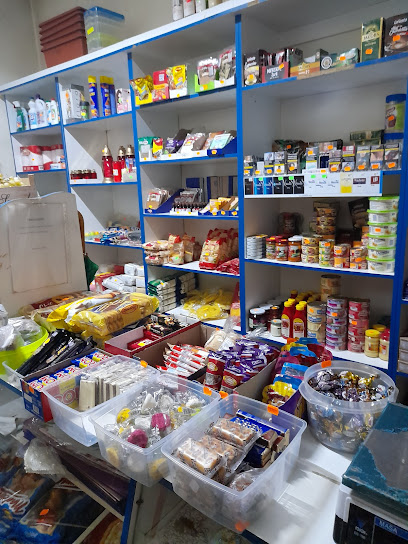
Rivaly Ch Grandmarket
Explore authentic Romanian flavors at Rivaly Ch Grandmarket in Câmpeni, where local produce meets vibrant culture, perfect for food lovers and adventurers.
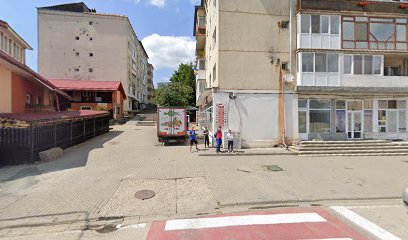
Essential bars & hidden hideouts
Gondűző
Explore Gondűző in Rimetea for a cozy bar experience with local drinks, stunning views, and a welcoming atmosphere at budget-friendly prices.
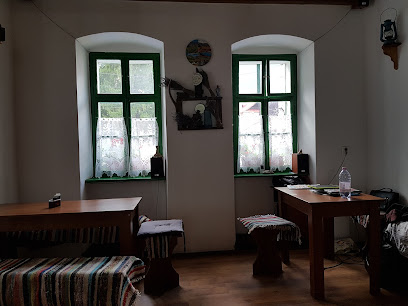
Ady Caffe Iara
Experience the warm ambiance and delightful beverages at Ady Caffe Iara in Tăuții-Măgherăuș, the perfect bar for tourists to unwind.
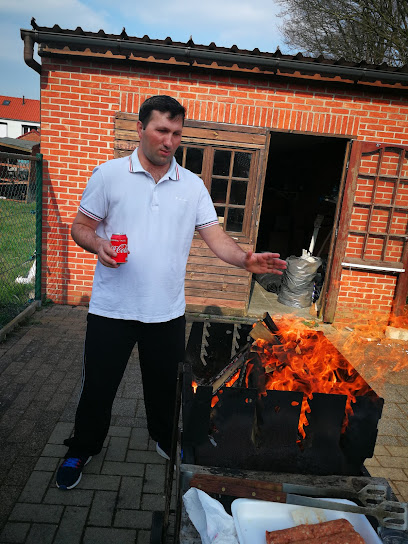
Forrás Borozó
Discover the charm of Forrás Borozó, a cozy wine bar in Rimetea offering exquisite local wines and a taste of Romanian culture.
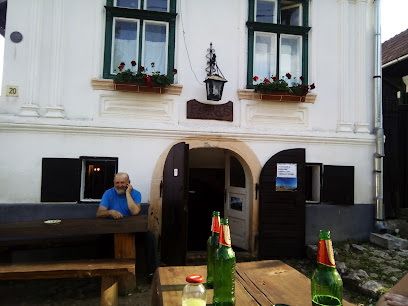
Romina's Disco Bar
Immerse yourself in the lively atmosphere of Romina's Disco Bar, Hălmagiu's ultimate nightlife destination for music and dance.
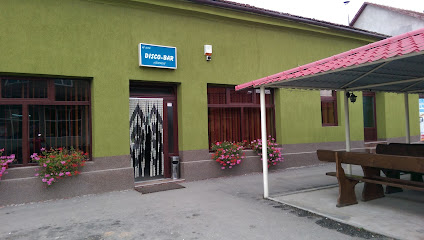
Bar UFO
Discover the cosmic charm of Bar UFO in Câmpeni, offering a stellar selection of drinks and a relaxed atmosphere for all visitors.
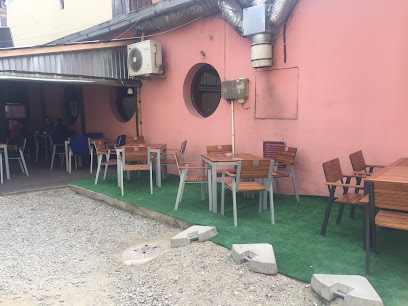
La Magazie
Discover the rustic charm of La Magazie, a delightful bar in Măguri-Răcătău, where local traditions and flavors come alive.
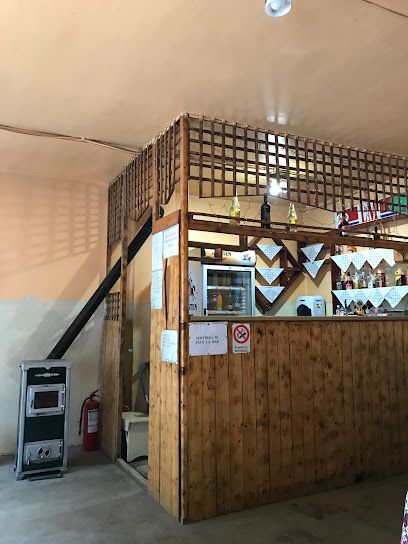
La pod
Experience the lively ambiance and local flavors at La Pod, a top bar in Cîmpani, Romania, perfect for unwinding with friends.
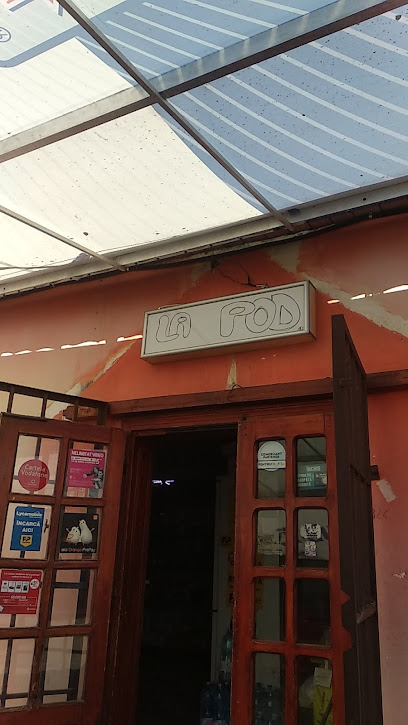
Bar Steaua
Experience the charm of Bar Steaua in Crișcior, where great drinks and a welcoming atmosphere await every traveler.
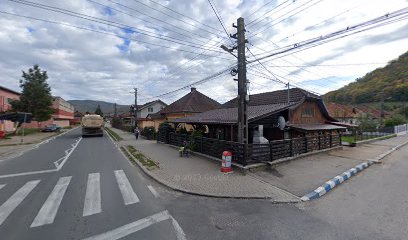
Mountain Slip'N Slide
Discover the perfect blend of adventure and relaxation at Mountain Slip'N Slide, a premier bar in the heart of Romania's stunning landscapes.
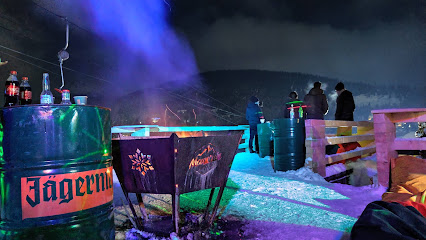
Green bar
Experience the vibrant atmosphere of Green Bar in Huedin, where locals and tourists gather for great drinks and unforgettable nights.
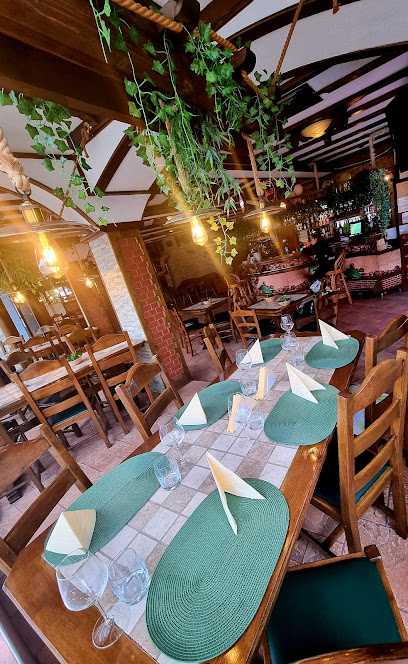
Cafe Bar UTI
Experience the charm of Valea Lupșii at Cafe Bar UTI, where local flavors meet warm hospitality in a cozy setting.
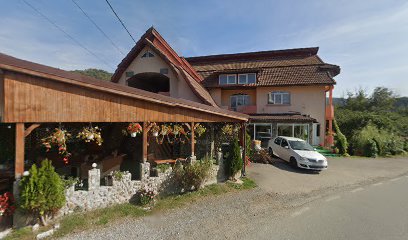
Colţul Întelepciunii
Discover the charm of Colţul Întelepciunii, a cozy bar in Roșia Montană offering authentic local drinks and a warm atmosphere for all travelers.
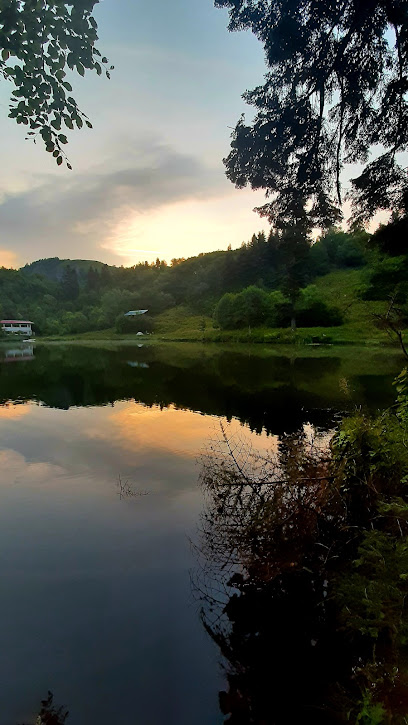
Bar Goia
Discover the charm of Bar Goia in Muntele Rece, where local drinks meet breathtaking scenery for an unforgettable experience.
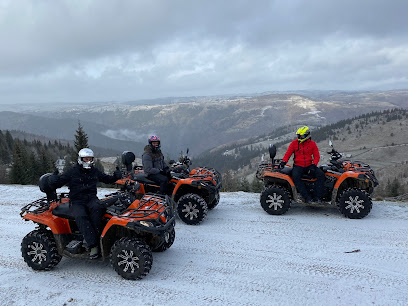
Medesty Bar
Discover Medesty Bar in Finișel, where vibrant nightlife meets cozy ambiance for a truly unforgettable experience.
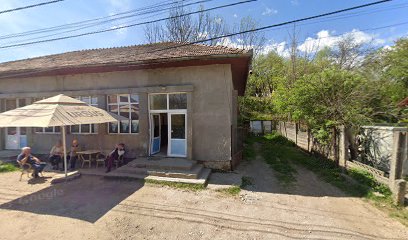
Local Phrases about Apuseni Mountains
-
- HelloSalut
[sa-ˈlut] - GoodbyeLa revedere
[la re.veˈde.re] - YesDa
[da] - NoNu
[nu] - Please/You're welcomeTe rog
[te rog] - Thank youMulțumesc
[mul.t͡suˈmesk] - Excuse me/SorryScuzați-mă
[sku.zaʦi mə] - How are you?Ce mai faci?
[ʧe maj ˈfat͡ʃʲ] - Fine. And you?Bine. Și tu?
[biˈne ʃʲ‿ʃʲi tu] - Do you speak English?Vorbiți engleză?
[vorˈbit͡sj enˈɡle.zə] - I don't understandNu înțeleg
[nu ɨnt͡seˈleɡ]
- HelloSalut
-
- I'd like to see the menu, pleaseAș dori să văd meniul, vă rog
[aʃ ˈdo.ri sə vad meˈni.ul və roɡ] - I don't eat meatNu mănânc carne
[nu mɨˈnɨŋk ˈkar.ne] - Cheers!Noroc!
[ˈnorok] - I would like to pay, pleaseAș dori să plătesc, vă rog
[aʃ ˈdo.ri sə ˈplə.tesk və roɡ]
- I'd like to see the menu, pleaseAș dori să văd meniul, vă rog
-
- Help!Ajutor!
[aˈʒu.tor] - Go away!Du-te!
[du.te] - Call the Police!Sună la Poliție!
[su.nə la poˈlit͡si.e] - Call a doctor!Sună un doctor!
[su.nə un docˈtor] - I'm lostM-am pierdut
[mam pi.erˈdut] - I'm illSunt bolnav
[sunt bo̯olˈnav]
- Help!Ajutor!
-
- I'd like to buy...Aș dori să cumpăr...
[aʃ ˈdo.ri sə kumˈpar] - I'm just lookingDoar mă uit
[do.ar mə uit] - How much is it?Cât costă?
[kɨt kosˈtə] - That's too expensiveE prea scump
[e pre̯e̯a skump] - Can you lower the price?Puteți să scădeți prețul?
[puˈtet͡sj sə ˈskə.de.t͡sj pretsul]
- I'd like to buy...Aș dori să cumpăr...
-
- What time is it?Cât este ora?
[kɨt es.te o.ra] - It's one o'clockEste ora unu
[es.te o.ra unu] - Half past (10)Jumătate după (10)
[ʒu.məˈta.te duˈpə (10)] - MorningDimineața
[di.mine̯a̯t͡sa] - AfternoonDupă-amiază
[duˈpə a.miˈa.zə] - EveningSeara
[se̯a.ra] - YesterdayIeri
[jerj] - TodayAstăzi
[as.təz] - TomorrowMâine
[mɨˈi.ne] - 1Unu
[unʊ] - 2Doi
[doj] - 3Trei
[trej] - 4Patru
[patru] - 5Cinci
[ʧint͡ʃ] - 6Șase
[ʃaʃe] - 7Șapte
[ʃapte] - 8Opt
[opt] - 9Nouă
[no.ʊə] - 10Zece
[ʒe.t͡ʃe]
- What time is it?Cât este ora?
-
- Where's a/the...?Unde este unul/una...?
[un.de es.te uˈnul/uˈna] - What's the address?Care este adresa?
[ka.re es.te aˈdresə] - Can you show me (on the map)?Puteți să-mi arătați (pe hartă)?
[puˈtet͡sj səmi aˈrətət͡sj pe harˈtə] - When's the next (bus)?Când vine următorul (autobuz)?
[kɨnd vi.ne urˈmə.to.rul (au.to.buz)] - A ticket (to ....)Un bilet (spre ....)
[un biˈlet spre]
- Where's a/the...?Unde este unul/una...?
History of Apuseni Mountains
-
The Apuseni Mountains are home to ancient fortresses built by the Dacians, the indigenous people of Romania before the Roman conquest. The most notable of these is the fortress of Piatra Craivii, which served as a stronghold and a spiritual center for the Dacians. Archaeological excavations have uncovered remnants of walls, ceramics, and tools that provide insight into the life of the Dacians who once inhabited this region.
-
During the Roman conquest of Dacia in 106 AD, the Apuseni Mountains became a focal point due to their rich gold and silver deposits. The Romans established mining operations in the region, most notably at Alburnus Maior (modern-day Roșia Montană). The extensive network of Roman galleries and mining tools discovered in the area highlight the significance of these mountains in the Roman Empire's economic strategy.
-
In the medieval period, the Apuseni Mountains were an important part of the Kingdom of Hungary and later the Principality of Transylvania. The area was known for its strategic importance and its valuable mineral resources. Numerous medieval castles and fortified churches were built in the region, such as the Cetatea Trascăului (Trascău Fortress), which served as a defense against invasions and a symbol of the local nobility's power.
-
The Apuseni Mountains were the backdrop for the famous Horea, Cloșca, and Crișan Rebellion of 1784-1785. This peasant uprising was led by Horea, Cloșca, and Crișan, who fought against the feudal oppression and injustices of the Habsburg Empire. The rebellion, although ultimately crushed, had a significant impact on the region's social and political landscape and is remembered as a symbol of resistance and the fight for justice.
-
In the early 20th century, the Apuseni Mountains gained scientific attention with the discovery of the Scărișoara Cave, one of the largest ice caves in Romania. The cave, located in the Gârda Seacă commune, contains a massive underground glacier and fascinating ice formations. It has become a key site for speleological research and a popular tourist attraction, showcasing the unique natural beauty of the Apuseni Mountains.
-
The Apuseni Mountains are renowned for their traditional villages and rich ethnographic heritage. Villages like Rimetea, with its well-preserved Hungarian architecture, and Roșia Montană, known for its mining history, offer a glimpse into the region's cultural past. The local population, composed of Romanians, Hungarians, and other ethnic groups, has maintained a diverse cultural landscape, with traditional crafts, music, and festivals that continue to thrive to this day.
-
In recent years, the Apuseni Mountains have become a focus for conservation efforts aimed at preserving their unique natural and cultural heritage. Protected areas such as the Apuseni Natural Park have been established to safeguard the region's biodiversity and landscape. These efforts also emphasize sustainable tourism, promoting activities that allow visitors to enjoy the mountains' beauty while minimizing environmental impact.
Apuseni Mountains Essentials
-
The Apuseni Mountains are located in western Romania, within the Carpathian range. The nearest major city is Cluj-Napoca, which has an international airport (Cluj-Napoca International Airport). From Cluj-Napoca, you can take a train, bus, or rent a car to reach various points in the Apuseni Mountains. Train services are available to towns like Oradea and Beiuș, which serve as gateways to the region. Buses also run regularly from Cluj-Napoca to these towns.
-
Once you are in the Apuseni Mountains, getting around can be done by car, taxi, or local buses. Renting a car is highly recommended for exploring the more remote areas and enjoying the scenic drives. Local buses and minibuses (known as 'microbuze') connect the main towns and villages but may not reach all tourist spots. Taxis are available, although they can be more expensive and less convenient for longer trips.
-
The official currency in Romania is the Romanian Leu (RON). Credit and debit cards are widely accepted in urban areas, hotels, and restaurants in the main towns. However, it's advisable to carry cash when visiting rural areas and smaller villages, as card payments may not always be possible. ATMs are available in larger towns such as Cluj-Napoca, Oradea, and Beiuș.
-
The Apuseni Mountains are generally safe for tourists. However, as with any travel destination, it's important to take standard precautions. Avoid walking alone at night in unfamiliar areas and keep an eye on your belongings in crowded places. There are no specific high-crime areas targeting tourists, but it's always best to stay vigilant and aware of your surroundings. When hiking, ensure you have proper equipment and inform someone of your route.
-
In case of emergency, dial 112 for immediate assistance. This number connects you to police, fire, and medical services. Major towns in the Apuseni Mountains have medical facilities and pharmacies. It is recommended to have travel insurance that covers medical emergencies and evacuation. For minor health issues, you can purchase over-the-counter medications at local pharmacies.
-
Fashion: Do wear comfortable hiking clothes and sturdy footwear if you plan to explore the mountains. Avoid overly revealing clothing, especially in more traditional villages. Religion: Do respect local customs and religious sites. When visiting churches or monasteries, dress modestly and cover your head if required. Public Transport: Do be punctual and respectful when using public transport. Don't be loud or disruptive. Greetings: Do greet people with a handshake and maintain eye contact. A friendly 'Bună ziua' (Good day) is appreciated. Eating & Drinking: Do try local dishes and beverages. Accept food and drink offerings graciously, as refusal can be seen as impolite. Don't waste food, as it is considered disrespectful.
-
To experience the Apuseni Mountains like a local, visit local markets to buy fresh produce, traditional crafts, and local cheeses. Engage with locals, who are often friendly and willing to share insights about their culture and history. Don't miss the Scărișoara Ice Cave and the Bear's Cave (Peștera Urșilor), two of the region's natural wonders. For a unique experience, participate in a traditional Romanian festival or attend a local folk music event. Hiking trails such as the Apuseni Natural Park offer breathtaking views and a chance to see diverse flora and fauna.
Nearby Cities to Apuseni Mountains
-
Things To Do in Deva
-
Things To Do in Arad
-
Things To Do in Baia Mare
-
Things To Do in Sighisoara
-
Things To Do in Satu Mare
-
Things To Do in Debrecen
-
Things To Do in Târgu Jiu
-
Things To Do in Nyiregyhaza
-
Things To Do in Râmnicu Vâlcea
-
Things To Do in Drobeta-Turnu Severin
-
Things To Do in Mukachevo
-
Things To Do in Brasov
-
Things To Do in Szeged
-
Things To Do in Pitesti
-
Things To Do in Uzhhorod











